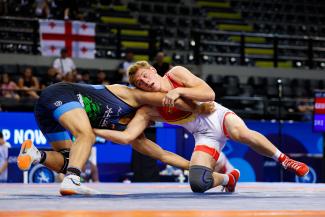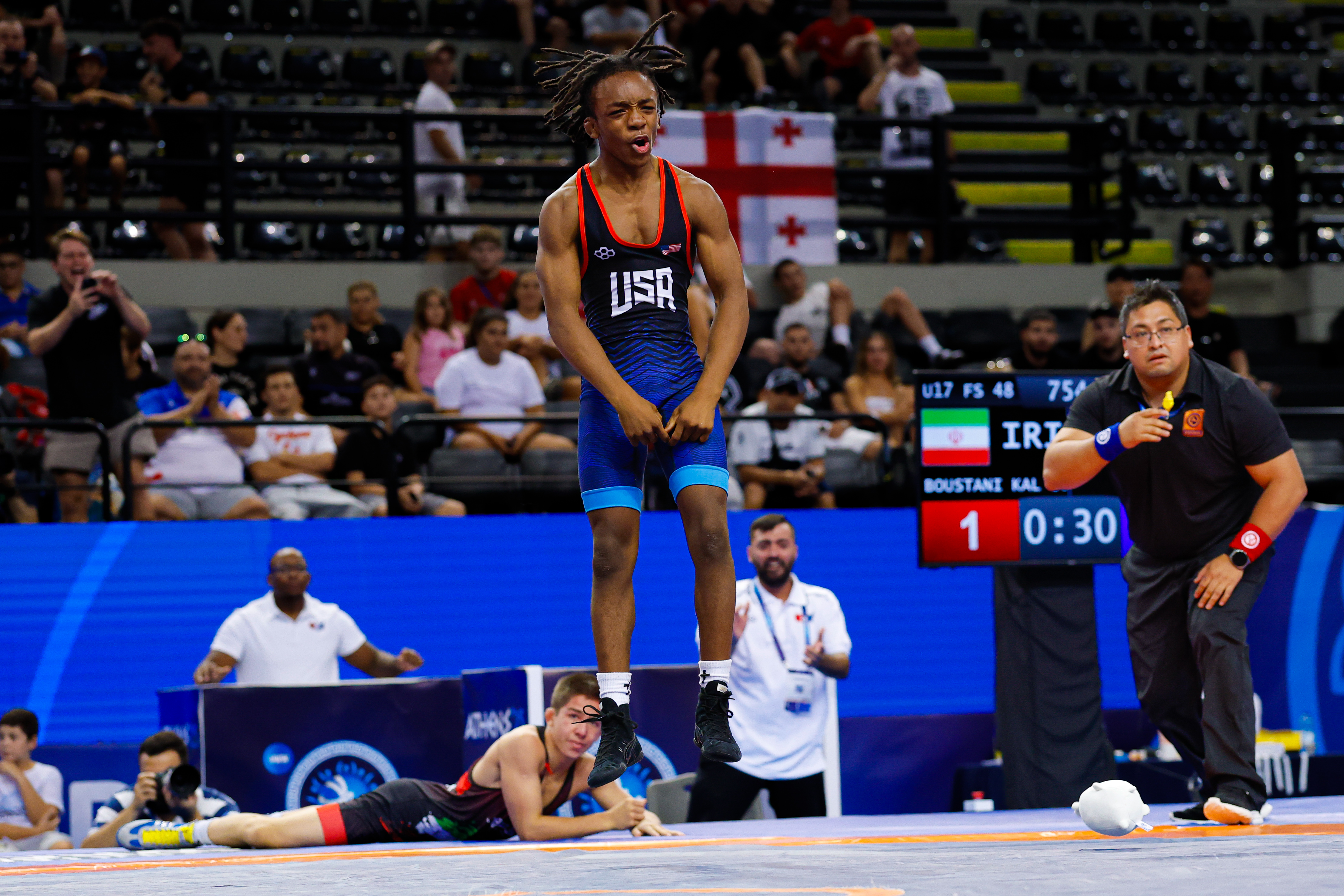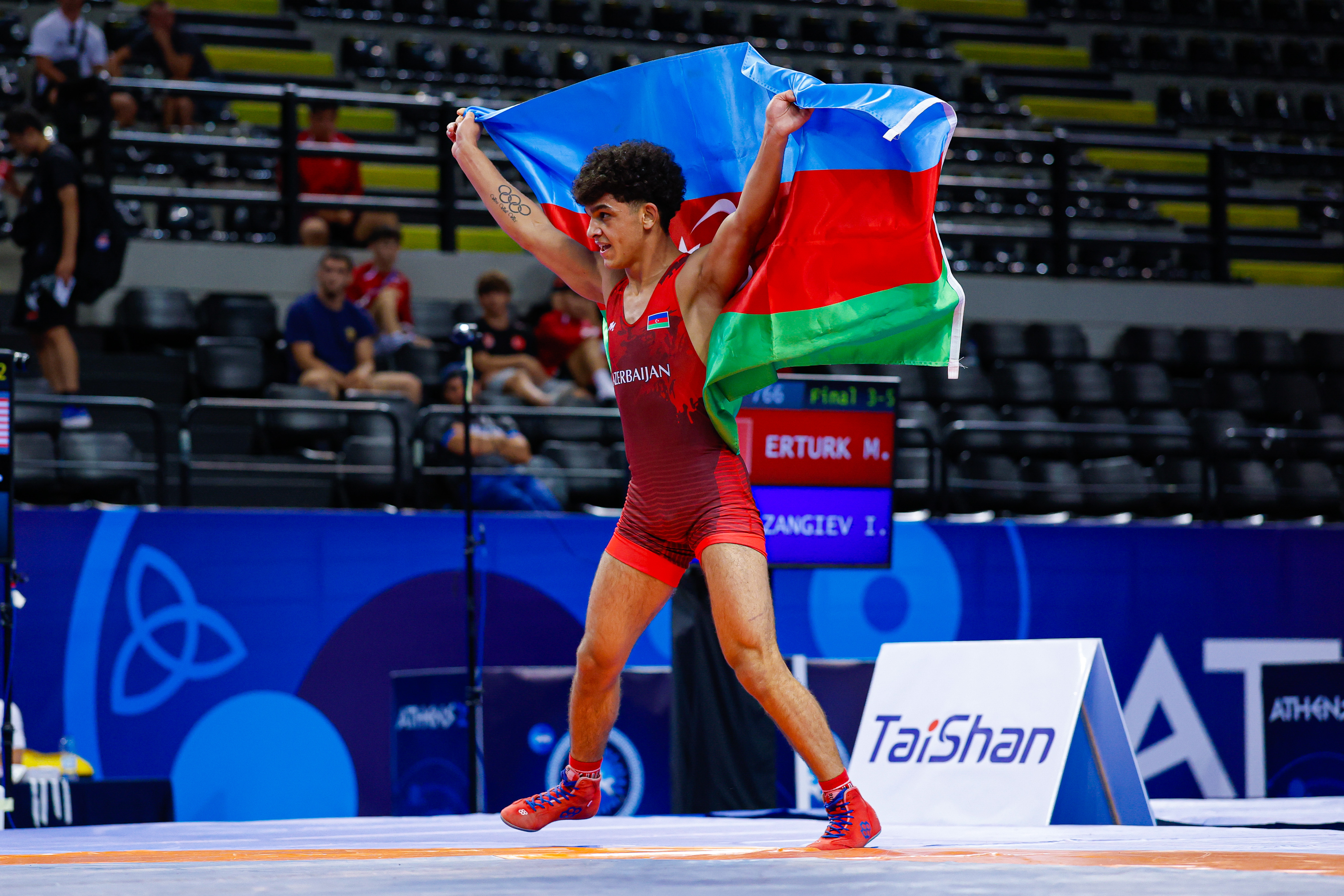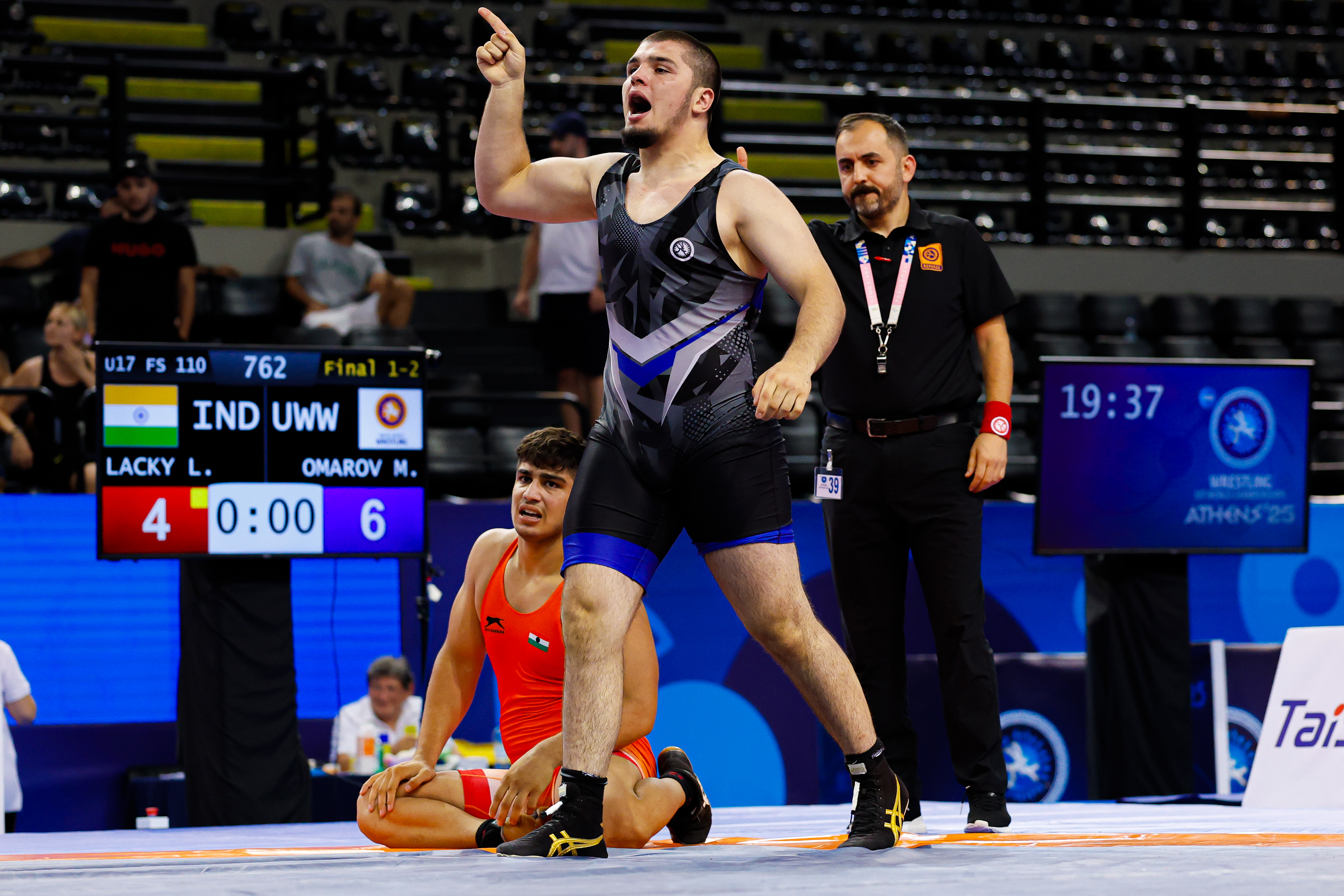#WrestleTokyo Olympic Games Preview: 50kg
Wednesday, July 21, 2021 - 17:55 By Ken Marantz

TOKYO, Japan (July 21) – In one of those wild twists of fate that adds to the appeal of sports, Yanan SUN (CHN) and Mariya STADNIK (AZE) can be indirectly credited with helping Yui SUSAKI (JPN) get to the Tokyo Olympics.
Now those two and the rest of the field in the women's 50kg division will have to contend with the unintended result of their largesse. Although unseeded, Susaki will be the prohibitive favorite when they all take to the mat at Makuhari Messe on Aug. 6-7.
The story of the emotional roller coaster that Susaki took en route to her Olympic berth is well documented. How Susaki, the two-time world champion, had lost out to rival Yuki IRIE (JPN) for a place on the team to the 2019 World Championships. How Irie, who seemed a shoo-in for a medal in Nur-Sultan that would have automatically clinched an Olympic place for her, was dealt a wild 13-12 loss by Sun in the quarterfinals. How Sun then lost to Stadnik, thus denying Irie a place in the repechange and leaving 50kg as the only weight class in which Japan did not qualify.
Most significantly, those falling dominoes reopened the door to Tokyo 2020 for Susaki, who avenged the loss to Irie at the national championships, thus earning the chance to qualify Japan at the Asian Olympic qualifying tournament. After a year delay and with her fate back in her own hands, she tore apart her opponents in Almaty last April to earn her first trip to the Olympics.
"It was a long, tough road to get on the [Olympic] team," Susaki said in a recent online press conference. "I feel like I've finally reached the start line."
The 33-year-old Stadnik goes into the competition as the top seed, and her 2019 world gold--which came exactly a decade after winning her only other world title--certainly makes her a contender for a fourth Olympic medal.
But Susaki, who was named one of host country's flag-bearers for the opening ceremony, will firmly be the one to beat at Makuhari Messe, which is located just outside Tokyo in neighboring Chiba Prefecture, about 20 kilometers from her hometown of Matsudo.
The 22-year-old Susaki has lost just three matches in her entire career dating back to junior high school---all to Irie. Globally, she has been untouchable. Among her many laurels were three straight world cadet titles from 2014 to 2016, then a jump straight to senior world champion on 2017, which she repeated in 2018. She added world junior golds in 2018 and 2019.
Along the way, Susaki has faced and beaten four of the 15 others entered in the Olympic 50kg field. She has defeated Sun three times, most recently at the 2019 World Cup; Stadnik twice, including in the final at the 2018 World Championships; Emilia VUC (ROU) twice; and Oksana LIVACH (UKR) once. And for the record, Susaki is 2-for-2 in meetings with Rio 2016 Olympic champion Eri TOSAKA (JPN).
"After it was decided that Tokyo would host the Olympics, all I could think about was that I wanted to win the gold medal in Tokyo," Susaki said.
Who can stop her?
For Stadnik, Susaki could be the next in a line of Japanese to spoil her dream of an Olympic gold. In the final at London 2012, Stadnik lost to Hitomi OBARA (JPN); four years later in Rio, Tosaka denied her the gold. Stadnik also has a bronze at Beijing 2008.
This year, Stadnik has prepped for Tokyo with victories at the European Championships and Poland Open. At the latter, her run to the gold included wins over Vuc and Livach.
China's Sun, despite her fifth-place finish at the 2019 worlds, cannot be discounted. The veteran is a wily, opportunistic wrestler, as she showed in the win over Irie, in which she scored 9 points on a pair of back suplexes that would have seemed right at home in a Greco match. And she gave Stadnik a run for her money in the semifinals, losing a close 6-4 decision.
Sun, 28, won her lone world title at 51kg in 2013, and was a bronze medalist at the Rio Olympics. She also has a world silver from 2012 and a bronze from 2018.
Vuc goes into Tokyo as the No. 2 seed, helped by her silver medal at the 2019 worlds that only showed she was the best in the weaker half of the draw. She barely got past Valentina ISLAMOVA-BRIK (KAZ), erasing an 0-6 deficit to win 6-6 in the semifinals. In the final, she got hammered 13-0 by Stadnik.
Vuc, the world silver medalist behind Susaki in 2017, has had mixed results leading up to the Olympics this year.
She beat Islamova-Brik for a bronze medal at the Matteo Pellicone Tournament and placed second at last month's Yasar Dogu, losing in the final to Miglena SELISHKA (BUL), who will be in Tokyo as winner of the European Olympic qualifier. But she also lost to Livach in the quarterfinals at the European Championship, and to Stadnik by technical fall in the first round at the Poland Open.
No. 3 seed Livach was the 2019 European champion, beating Selishka in the final, and a 2018 world bronze medalist. This year, she placed fifth at the European Championships and lost to Stadnik in the final at the Poland Open.
Islamova-Brik, the No. 4 seed in Tokyo, earned her Olympic ticket by taking a bronze at the 2019 worlds. The Russian-born 29-year-old, who began competing for Kazakhstan in 2018, won the Asian title this year, albeit in the absence of Japanese and Chinese wrestlers, and placed third at the Poland Open.
The two wild cards in the deck are Sarah HILDEBRANDT (USA) and Stalvira ORSHUSH (RUS), both of whom dropped down from higher weight classes and have had little or no past meetings with the others.
Hildebrandt was the 2018 world silver medalist at 53kg, but missed out on qualifying in that weight class at the 2019 worlds after losing to Mayu MUKAIDA (JPN) in the quarterfinals and Vinesh PHOGAT (IND) in the repechage.
The 27-year-old dropped down to 50kg and, at the 2020 Matteo Pellicone, won the gold with a 4-2 victory over Vuc in the final. She then earned the Olympic spot for the U.S. at the Pan American Olympic qualifying tournament, which was held in early 2020 just as the coronavirus was beginning to surge. At the U.S. trials, she defeated Victoria ANTHONY (USA) to fill the spot herself.
Orshush replaced Ekaterina POLESHCHUK (RUS), who had secured Russia's Olympic place by winning a bronze medal at the 2019 worlds. Like Hildebrandt, she competed at 53kg in Nur-Sultan, but was dealt an early exit by Luisa VALVERDE (ECU). Orshush had defeated Poleshchuk for the Russian national title at 53kg earlier that year.
The 29-year-old Orshush was a European bronze medalist at 53kg in 2020 and the European champion at 55kg this year. She was Russia's entry at 53kg at the European Olympic qualifying tournament, but lost in the semifinals.
The last major tournament in which she competed at a weight lower than 53kg was the 2013 World Junior Championships, where she won the 51kg silver medal.
When Susaki thought her Olympic dream had ended and had little motivation to practice, her coach encouraged her by saying that as long as there was "a 0.01 percent chance," she should never give up.
She may be close to a 100-percent thing when it comes to winning the Olympic gold, but she knows as well as anyone that there is always someone out there ready to beat the odds.
Wrestling at the Tokyo Olympic Games kicks off August 1-7 at the Makuhari Messe with 50kg action beginning on August 6.
50kg
No. 1 Mariya STADNIK (AZE)
No. 2 Emilia Alina VUC (ROU)
No. 3 Oksana LIVACH (UKR)
No. 4 Valentina Ivanovna ISLAMOVA BRIK (KAZ)
Stalvira ORSHUSH (RUS)
Yanan SUN (CHN)
Sarra HAMDI (TUN)
Adijat Avorshai IDRIS (NGR)
Yusneylis GUZMAN LOPEZ (CUB)
Sarah Ann HILDEBRANDT (USA)
Miglena Georgieva SELISHKA (BUL)
Evin DEMIRHAN (TUR)
Yui SUSAKI (JPN)
Namuuntsetseg TSOGT OCHIR (MGL)
Seema SEEMA (IND)
Lucia Yamileth YEPEZ GUZMAN (ECU)


 Ariah MILLS (USA) won the 48kg gold medal for the United States. (Photo: United World Wrestling / Kostadin Andonov)
Ariah MILLS (USA) won the 48kg gold medal for the United States. (Photo: United World Wrestling / Kostadin Andonov) Huseyn ISMAYILOV (AZE) celebrates after winning the 65kg gold medal. (Photo: United World Wrestling / Kostadin Andonov)
Huseyn ISMAYILOV (AZE) celebrates after winning the 65kg gold medal. (Photo: United World Wrestling / Kostadin Andonov) Magomedrasul OMAROV (UWW) held on to his 6-4 lead to win the 110kg final against LACKY (IND). (Photo: United World Wrestling / Kostadin Andonov)
Magomedrasul OMAROV (UWW) held on to his 6-4 lead to win the 110kg final against LACKY (IND). (Photo: United World Wrestling / Kostadin Andonov)
Share your thoughts.
Comments